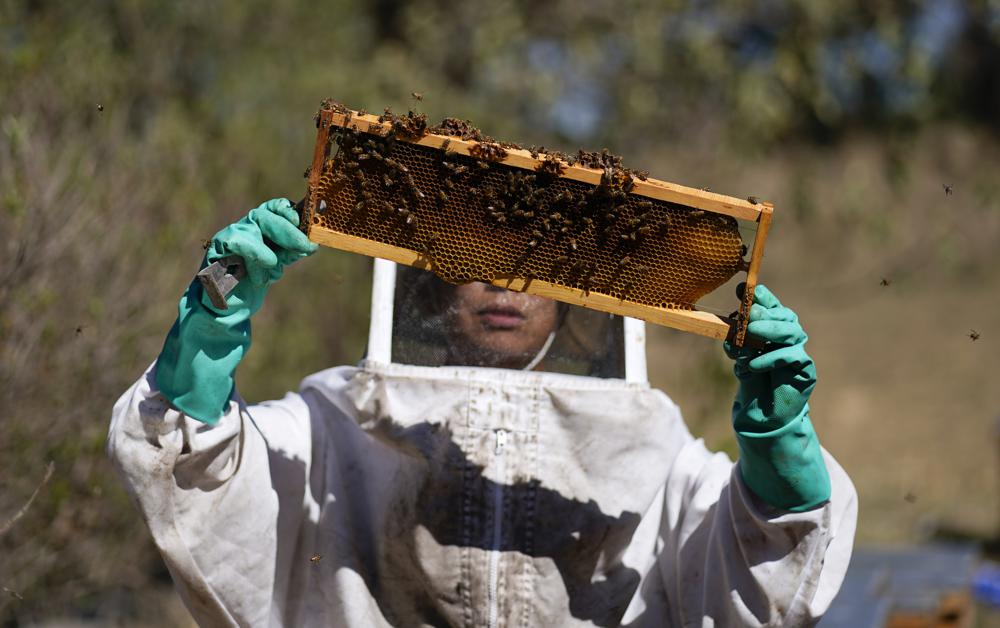Adriana Velíz, clad in a white beekeeper suit, hovers over a bee hive with the focus of a skilled surgeon, holding a knife. Located in one of the busiest districts of Mexico City, she opens the side of a light post and shines a glowing red lantern onto the hive, hoping to protect the approximately 20,000 bees residing inside.
Adriana Velíz leads a group, primarily consisting of women, which is committed to relocating bees hive by hive in Mexico City to prevent the extermination of thousands of bees that live there.
The group, called Abeja Negra SOS, came into existence in 2018 after Velíz, who was a veterinarian employed by the government of the city at the time, observed that the standard response when authorities received calls regarding beehives was to eliminate the bees. Velíz and her coworkers began searching for alternate solutions.
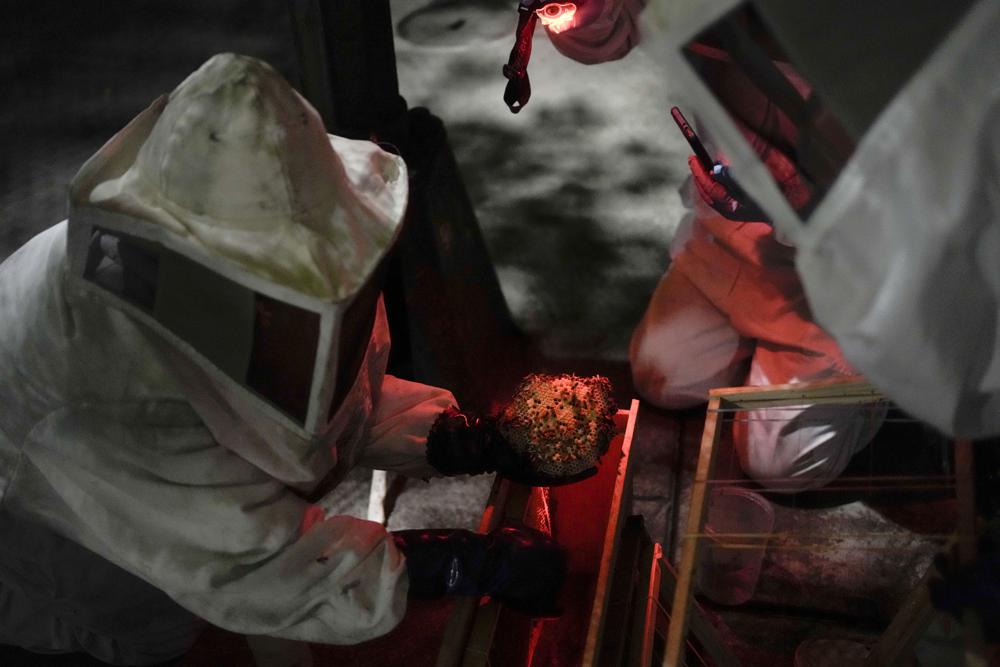
Adriana Velíz, who is a part of Abeja Negra SOS, emphasizes that they carry out these rescues because the bee population is in danger of extinction.
The group provides an alternative for emergency teams, ensuring that they don’t end up exterminating the bees; instead, they give them a second lease of life.
Bee populations worldwide have faced challenges in recent years, with an estimated 25% loss of bees in the US alone. Earlier this year, “mass killings” of millions of bees due to pesticides in Southern Mexico devastated local beekeepers.
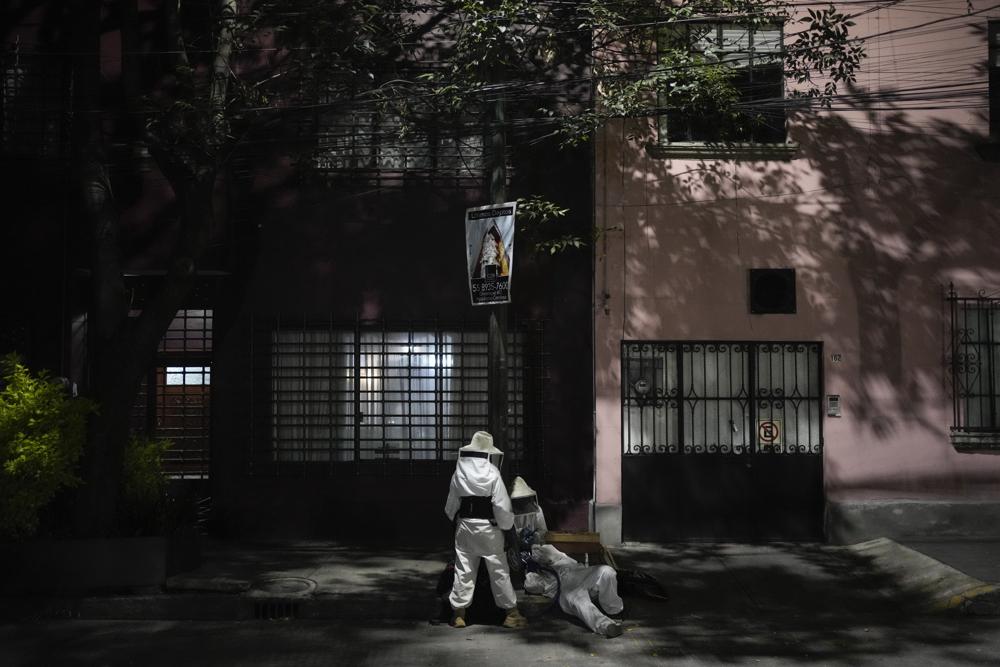
Causes for the decline in bee populations are often attributed to human activity, including the use of harmful chemicals, destruction of natural habitats, and climate change.
Scientists and world leaders warn that further bee population declines could have detrimental ripple effects.
In 2019, the United Nations alerted the global community about the severe threat posed by the loss of bees to food security.
Adriana Correa Benítez, a professor specializing in bee research at the National Autonomous University of Mexico, and others warn that declining bee populations could make it more difficult for Mexico to combat climate change.

The loss of bees can significantly impact agricultural practices, thereby reducing yields, which could further contribute to food scarcity in areas where the population depends on agriculture.
Adriana Correa Benítez highlights that bees do not just pollinate crops that humans eat; they also pollinate native plants that play a critical role in regulating the ecosystem.
Furthermore, the bee population’s pollination service influences reforestation efforts, which are essential in the face of climate change.
Within the last five years, the group has traversed through Mexico City, which is home to nine million inhabitants, rescuing bee colonies from gutters, trees and lamp posts. The group has successfully relocated roughly 510 hives, with the average cluster consisting of around 80,000 bees.
On a recent Thursday night in the region, Velíz cautiously inspects a small beehive located within a street lamp. She carefully slices open the hive using a knife, coaxing a calm, gentle noise from the hive, similar to pacifying a child.

Velíz retrieves the dripping honeycomb and delicately places it within a wooden square frame, which she then transfers into a wooden box. She considers themselves lucky tonight, considering that this is a small, harmless, colony of bees, which she fondly refers to as “hippie bees.”
During these operations, the beekeepers are on a mission to locate the queen bee, a vital component that can aid in the rehabilitation of the bees, ensuring that the colony gets relocated seamlessly.
Velíz stops to listen to an almost imperceptible purring sound emanating from the wooden box, “You hear that? That means we have the queen,” she says, her ear tilted towards the box.
Since many of the bees present in Mexico have their roots in Africa, they tend to be more aggressive than their counterparts, the honeybees.
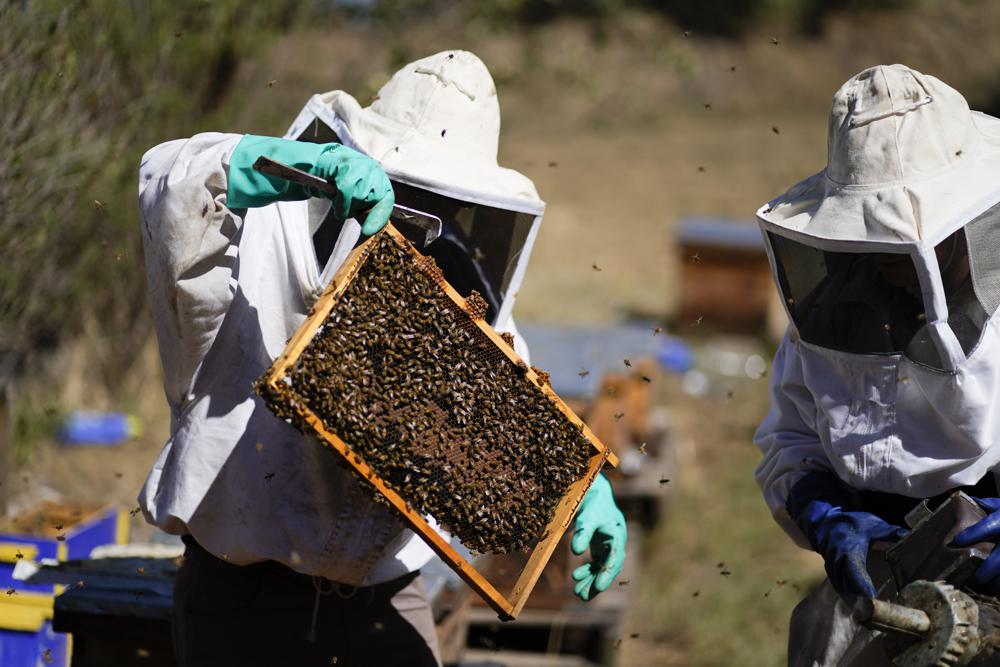
This can result in problems in big cities, where residents often regard them as a threat rather than acknowledge their environmental significance.
Velíz said the group’s dozen or so bee handlers are mostly women.
“We tried to work with men, but they seem to love the danger,” Velíz said. “We began to see that it wasn’t very viable, so we began to contract just women. We realized that we can do the exact same as them, and often even do it better.”
Abeja Negra SOS is a bee rescue group based in Guatemala City that works to safely remove beehives from urban areas and relocate them to safer, rural locations.
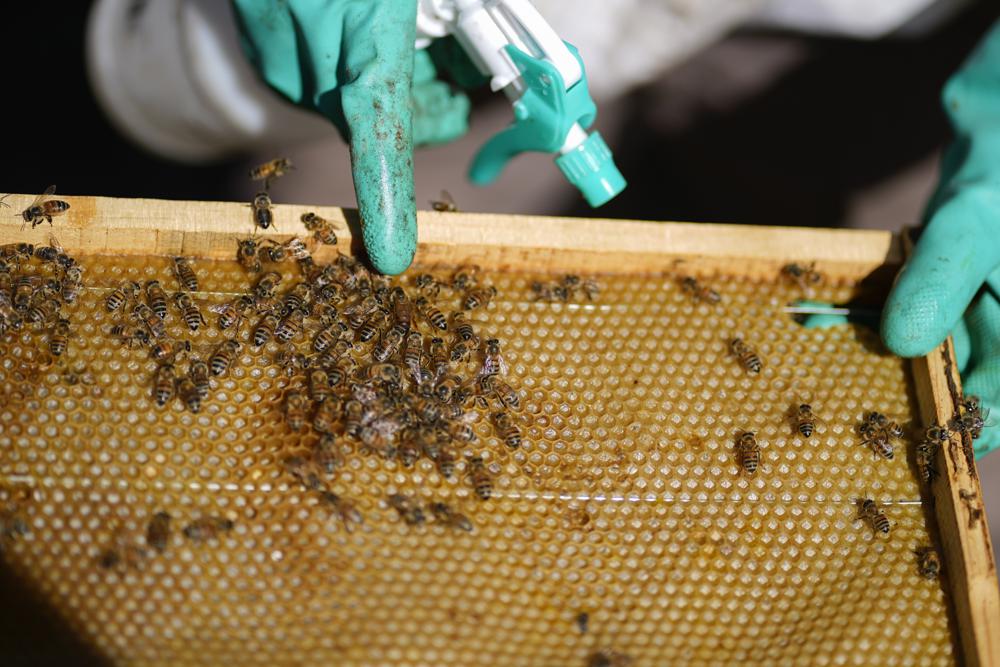
After capturing the bees, the group donates them to local beekeepers or releases them into the wild. The group charges a fee of around $300 to cover logistics, but they are facing difficulties in competing with free bee extermination services offered by firefighters.
Despite this, their work has inspired similar groups to emerge and make a positive impact in their own cities. Abeja Negra SOS may not be changing the world, but they are making a difference in their community.
